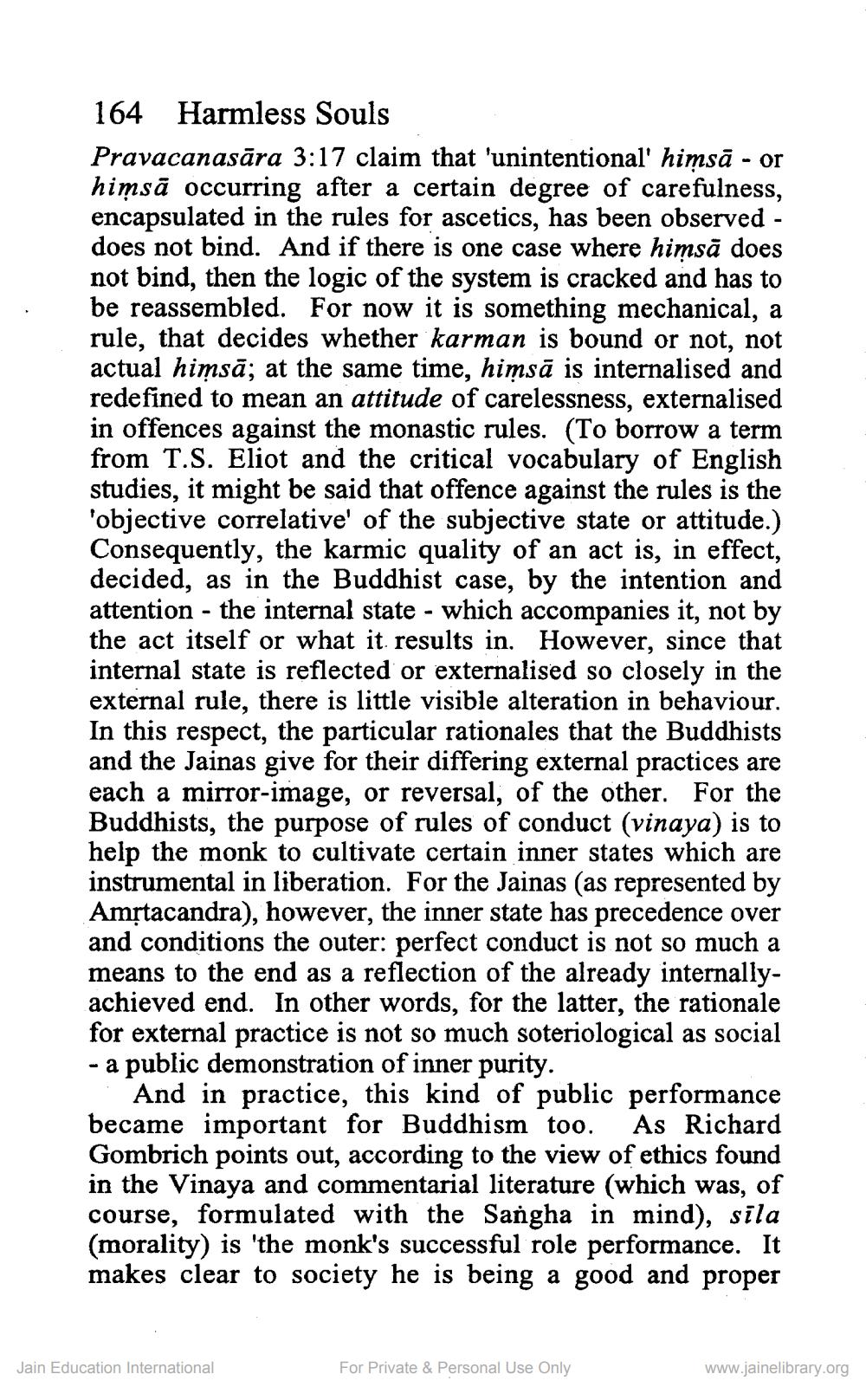________________
164 Harmless Souls Pravacanasāra 3:17 claim that 'unintentional' himsā - or himsā occurring after a certain degree of carefulness, encapsulated in the rules for ascetics, has been observed - does not bind. And if there is one case where himsā does not bind, then the logic of the system is cracked and has to be reassembled. For now it is something mechanical, a rule, that decides whether karman is bound or not, not actual himsā; at the same time, himsā is internalised and redefined to mean an attitude of carelessness, externalised in offences against the monastic rules. (To borrow a term from T.S. Eliot and the critical vocabulary of English studies, it might be said that offence against the rules is the 'objective correlative' of the subjective state or attitude.) Consequently, the karmic quality of an act is, in effect, decided, as in the Buddhist case, by the intention and attention - the internal state - which accompanies it, not by the act itself or what it results in. However, since that internal state is reflected or externalised so closely in the external rule, there is little visible alteration in behaviour. In this respect, the particular rationales that the Buddhists and the Jainas give for their differing external practices are each a mirror-image, or reversal, of the other. For the Buddhists, the purpose of rules of conduct (vinaya) is to help the monk to cultivate certain inner states which are instrumental in liberation. For the Jainas (as represented by Amộtacandra), however, the inner state has precedence over and conditions the outer: perfect conduct is not so much a means to the end as a reflection of the already internallyachieved end. In other words, for the latter, the rationale for external practice is not so much soteriological as social - a public demonstration of inner purity.
And in practice, this kind of public performance became important for Buddhism too. As Richard Gombrich points out, according to the view of ethics found in the Vinaya and commentarial literature (which was, of course, formulated with the Sangha in mind), sila (morality) is 'the monk's successful role performance. It makes clear to society he is being a good and proper
Jain Education International
For Private & Personal Use Only
www.jainelibrary.org




